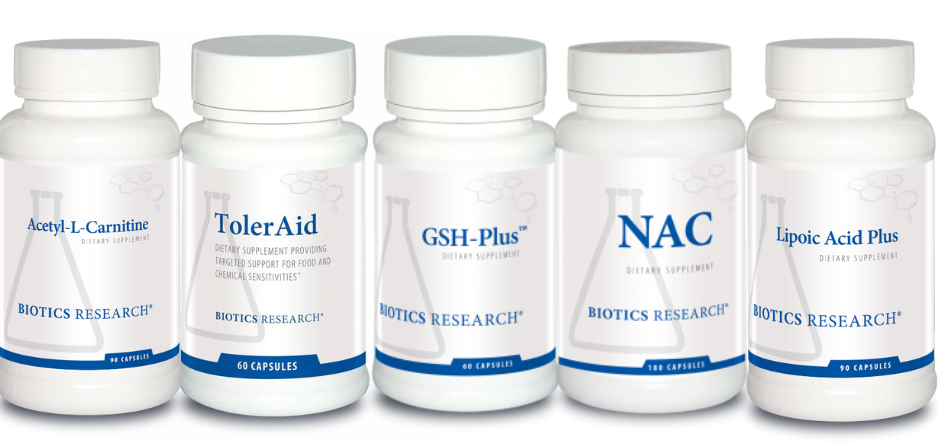Sulfites are chemical compounds with antifungal and antibacterial properties that are used to preserve fruits and vegetables. The most commonly used sulfite is sulfur dioxide, which is a gas. Vegetables exposed to sulfur dioxide quickly bind the gas and convert it to sulfite. Other forms added to processed foods include:
- Sodium sulfite
- Sodium or potassium bisulfite
- Sodium or potassium metabisulfite.
Most tissues in the body contain an enzyme called sulfite oxidase that detoxifies sulfites. But humans have much lower levels of this protective enzyme than test animals. In humans, the highest levels of this protective enzyme are found in the liver, kidneys, and heart. The lowest levels are found in the brain, spleen, and retina – which makes the latter organs highly vulnerable to damage by sulfites.
People who have an intolerance to sulfites often have lower levels of this protective enzyme, which can become damaged with aging and certain diseases. Those with asthma are at a special risk, with about 3 to 5 percent intolerance among asthmatics. In addition, allergies to sulfites exist, and can lead to sudden death from anaphylactic shock.

Foods High in Sulfites
| Highest Sulfite Levels | Moderately High Levels |
| Spinach (lower in organic) | All jams and jellies, corn syrup |
| Dried fruit (esp apricots & pineapple) | Guacamole |
| Lemon juice concentrate | Horseradish, pickles, and olives |
| Shredded coconut | Shrimp, scallops, crab and lobster |
| Wine | Fermented foods like processed cheese and beer |
| Dehydrated potatoes | Soy protein |
Health Impacts of Sulfites
Sulfites are associated with headaches, shortness of breath, chest tightness, dizziness and nausea, cramps, low blood pressure, flushing, diarrhea, hives, wheezing, and in rare instances anaphylactic shock.
Animal testing requires special animals in which sulfite oxidase has been suppressed to make them more like humans. Several studies have shown that sulfite in animals alters the function of the visual areas of the brain, creating high levels of free radicals and lipid peroxidation products accumulating in the hippocampus of the brain and retina of the eye.
This means sulfites could interfere with memory, learning, and vision. In fact, they could worsen neurodegenerative diseases and diseases of the eye, such as glaucoma and macular degeneration.
Several studies have shown that sulfites also impair important antioxidant enzymes in the hippocampus, which would make a person more vulnerable to other toxic substances such as MSG and heavy metals.

Glutathione Deficiency
When the antioxidant glutathione is depleted in neurons, sulfite becomes much more toxic. One study found that when an animal was under stress, the damaging effect of sulfites on the brain was magnified. And as we all know, stress is widespread among the human population.
There is also compelling evidence that sulfites can trigger and intensify excitotoxicity by suppressing a critical protective enzyme called glutamate dehydrogenase. This enzyme, which is critical for brain energy production, is damaged by sulfites.
There may be a connection between Parkinson’s disease and sulfites, as well. People with Parkinson’s have high levels of a toxic free radical called peroxynitrite in their brains. In the presence of sulfite, peroxynitrite damage to brain cells is magnified considerably.
People with Parkinson’s disease also have very low levels of glutathione in the affected area of their brains. In essence, a person with Parkinson’s disease is at a very high risk of worsening his or her condition when he or she ingests high levels of sulfites. Obviously, avoiding the foods containing sulfites is important. Several supplements can be protective.
Helpful Supplements
A recent study found that R-Lipoic Acid was protective in a dose of 200 mg three times a day with meals. N-Acetyl-Cysteine (NAC) greatly increases cell glutathione levels and can be quite protective. R-Lipoic Acid and Acetyl-L-Carnitine both increase brain cell energy and glutathione levels. They also bind excess iron.

From our online store, we suggest using the following supplements to reduce your sulfite sensitivity and increase glutathione:
- TolerAid is a blend of certain B vitamins, molybdenum, and liver detoxifying factors to help with chemical sensitivity, including sulfites. You can read about the design of this product here. Note that ScentArest and TolerAid are the same product, just renamed.
- N-Acetyl-Cysteine or GSH Plus – both of these products support natural glutathione production, which involves the amino acids glycine, glutamine, and cysteine. N-Acetyl Cysteine provides just one of these essentials in a high dose, whereas GSH-Plus provides a blend of NAC, glycine, and glutathione in combination.
- Acetyl L-Carnitine is one of the best amino acids for brain health. It has potential for enhancing brain function, preventing muscle damage, regulating blood sugar and increasing endurance.
- Lipoic Acid Plus provides lipoic acid (ALA), which is involved in converting glucose into adenosine triphosphate (ATP) for energy. It is helpful for releasing stored glycogen from a fatty liver, and for sugar handling issues.
A good start would be to choose one or two of these to start working on your sulfite detox abilities.
Please let us know if you’d like to chat about a personalized nutrition protocol to support your health!


